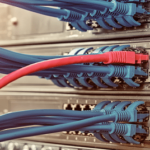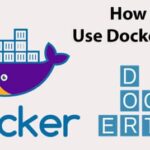In this tutorial, I will explain some important docker commands. I will explain some hands-on experience in how they are used and what they do.
Requirements
- A fresh server with Ubuntu 18.04 installed.
- A root password is set up on your server.
Update your System
First, it is recommended to update your system to the latest stable version. You can do it by running the following command:
apt-get upgrade -y
Once your system is up-to-date, restart the system to apply the changes.
Install Docker
Next, you will need to install Docker CE on your server. By default, the latest version of Docker is not available in the Ubuntu 18.04 server default repository.
So, you will need to add the repository for that.
First, download and add Docker CE GPG key with the following command:
apt-key add gpg
Next, add the Docker CE repository to APT with the following command:
Add the following line:
Save and close the file, when you are finished. Then, update the repository with the following command:
Once the repository is updated, install Docker CE with the following command:
After installing Docker CE, check the Docker service with the following command:
List Docker Commands
Let’s start with seeing all available commands docker have.
You can list all available docker command by running the following command:
You should see the following output:
builder Manage builds
config Manage Docker configs
container Manage containers
engine Manage the docker engine
image Manage images
network Manage networks
node Manage Swarm nodes
plugin Manage plugins
secret Manage Docker secrets
service Manage services
stack Manage Docker stacks
swarm Manage Swarm
system Manage Docker
trust Manage trust on Docker images
volume Manage volumes
Commands:
attach Attach local standard input, output, and error streams to a running container
build Build an image from a Dockerfile
commit Create a new image from a container’s changes
cp Copy files/folders between a container and the local filesystem
create Create a new container
diff Inspect changes to files or directories on a container’s filesystem
events Get real time events from the server
exec Run a command in a running container
export Export a container’s filesystem as a tar archive
history Show the history of an image
images List images
import Import the contents from a tarball to create a filesystem image
info Display system-wide information
inspect Return low-level information on Docker objects
kill Kill one or more running containers
load Load an image from a tar archive or STDIN
login Log in to a Docker registry
logout Log out from a Docker registry
logs Fetch the logs of a container
pause Pause all processes within one or more containers
port List port mappings or a specific mapping for the container
ps List containers
pull Pull an image or a repository from a registry
push Push an image or a repository to a registry
rename Rename a container
restart Restart one or more containers
rm Remove one or more containers
rmi Remove one or more images
run Run a command in a new container
save Save one or more images to a tar archive (streamed to STDOUT by default)
search Search the Docker Hub for images
start Start one or more stopped containers
stats Display a live stream of container(s) resource usage statistics
stop Stop one or more running containers
tag Create a tag TARGET_IMAGE that refers to SOURCE_IMAGE
top Display the running processes of a container
unpause Unpause all processes within one or more containers
update Update configuration of one or more containers
version Show the Docker version information
wait Block until one or more containers stop, then print their exit codes
To check system-wide information on docker, run:
You should see the following output:
Running: 0
Paused: 0
Stopped: 0
Images: 0
Server Version: 18.09.6
Storage Driver: overlay2
Backing Filesystem: extfs
Supports d_type: true
Native Overlay Diff: true
Logging Driver: json-file
Cgroup Driver: cgroupfs
Plugins:
Volume: local
Network: bridge host macvlan null overlay
Log: awslogs fluentd gcplogs gelf journald json-file local logentries splunk syslog
Swarm: inactive
Runtimes: runc
Default Runtime: runc
Init Binary: docker-init
containerd version: bb71b10fd8f58240ca47fbb579b9d1028eea7c84
runc version: 2b18fe1d885ee5083ef9f0838fee39b62d653e30
init version: fec3683
Security Options:
apparmor
seccomp
Profile: default
Kernel Version: 4.15.0-20-generic
Operating System: Ubuntu 18.04 LTS
OSType: linux
Architecture: x86_64
CPUs: 1
Total Memory: 1.455GiB
Name: ubuntu1804
ID: X5ES:6AX3:NNO4:7OUD:ID2H:NB5W:UHYV:QBPF:DTHM:2KWY:W3F7:ATNT
Docker Root Dir: /var/lib/docker
Debug Mode (client): false
Debug Mode (server): false
Registry: https://index.docker.io/v1/
Labels:
Experimental: false
Insecure Registries:
127.0.0.0/8
Live Restore Enabled: false
Product License: Community Engine
To check docker version, run:
You should see the following output:
Version: 18.09.6
API version: 1.39
Go version: go1.10.8
Git commit: 481bc77
Built: Sat May 4 02:35:57 2019
OS/Arch: linux/amd64
Experimental: false
Server: Docker Engine – Community
Engine:
Version: 18.09.6
API version: 1.39 (minimum version 1.12)
Go version: go1.10.8
Git commit: 481bc77
Built: Sat May 4 01:59:36 2019
OS/Arch: linux/amd64
Experimental: false
Downloading Docker Image
First of all, You will need to pull docker image because containers are built using docker image.
There are many images already available on docker website. You can found any image through a search.
For example to search Ubuntu 18.04 image, Run
You should see the following images available on docker website:
ercircle/ubuntu_server java1.8,tomcat1.9,mysql 5.7 ubuntu:18.04 mys… 1 [OK]
willimar/ubuntu-aspnet-core The base ubuntu:18.04 image with apt-transpo… 1
matrix1986/rust rust build, run with ubuntu:18.04 0
arnow117/ubuntu_base essential binaries under Ubuntu:18.04 0 [OK]
nologinb/java8 My variant of oracle java8 based on ubuntu:1… 0 [OK]
sensat/ubuntu Packaged ubuntu:18.04 with relevant dependen… 0
sashr/get_iplayer Container with Ubuntu:18.04 and get_iplayer:… 0
rocm/dev-ubuntu-18.04 Docker image based on Ubuntu:18.04 with the … 0
glitchylabs/docker-bitcoin-nicehash-miner This project is an easy to use nichhash mine…
0 [OK]
chockemeyer/dhcpd DHCPD container on ubuntu:18.04 basis 0
devtty1er/binaryninja-version Unmodified ubuntu:18.04 image tagged to mirr… 0
vkalvaitis/protobuf-compiler Compile protobuf files on docker. Based on u… 0
skyblue1294/docker_pyku_python3 PYKU_python3 Analysis frame, based on ubuntu… 0 [OK]
edwintye/sklearn36-ubuntu A small image with scikit-learn (and pandas)… 0 [OK]
puzza007/curl_docker ubuntu:18.04 plus curl master 0[OK]
cldx/sshd SSH daemon on Ubuntu:18.04 0
shlagevuk/minergate_cli Simple image based on ubuntu:18.04 with mine… 0 [OK]
durobun/ubntpy Ubuntu:18.04 + Python:3.7 0
ntnetx/php7.0-apache PHP 7.0 Install -> ubuntu:18.04 + Apache + m… 0
vadimzenin/ubuntu-tools-min Ubuntu with required minimum set of tools ba… 0
0x4ec7/ubuntu-python python installed on ubuntu:18.04 0
voltaireilustrisimo/my-shell ubuntu:18.04 with tools 0
dejef/u_min_app Ubuntu:18.04 with frozen python app 0
ktdfly/ubuntest ubuntu:18.04 python3 dnsutils curl wget ssh … 0
xamtasia/ubuntu-asp-net-core-hosting ASP Net Core on Ubuntu with Hosting (Latest … 0
Next, Download the latest version of Ubuntu with the following command:
The output looks some thing like this:
latest: Pulling from library/ubuntu
6abc03819f3e: Downloading [==========================> ] 25.36MB/28.86MB
6abc03819f3e: Pull complete
05731e63f211: Pull complete
0bd67c50d6be: Pull complete
Digest: sha256:f08638ec7ddc90065187e7eabdfac3c96e5ff0f6b2f1762cf31a4f49b53000a5
Status: Downloaded newer image for ubuntu:latest
Listing Images
Once the download has been finished, You can list all available images on your system by running the following command:
The output looks some thing like this:
ubuntu latest 7698f282e524 2 weeks ago 69.9MB
Running Docker Container
Now, to setup a basic ubuntu-18.04 container with a bash shell, you just run one command. docker run will run a command in a new container.
You’re now using a bash shell inside of a ubuntu docker container. To disconnect, or detach, from the shell without exiting use the escape sequence Ctrl-p + Ctrl-q.
Listing Containers
By default, you can use the following command to list all running containers:
You can see the running container in the following output:
ff2deb4f97b1 ubuntu "/bin/bash" a minute ago Up a minute gifted_wiles
You can also list both running and non-running containers by running the following command:
Sometimes container stops due to its process ending or you stopping it explicitly. In this situation you can run container again with container ID.
Note: You can find container ID using docker ps command.
Stoping Container
To stop a container’s process, run:
Saving Container
If you would like to save the changes you have made with a container, use commit command to save it as an image.
For example, create new-ubuntu image from ubuntu with the following command:
Now, run the following command to see a newly created image:
You should see the following output:
new-ubuntu latest 625f32622cbd 15 seconds ago 69.9MB
ubuntu latest 7698f282e524 2 weeks ago 69.9MB
This command turns your container to an image. You can roll back the container whenever you need.
Attach Docker Container
If we want to attach into a running container, Docker allows you to interact with running containers using the attach command.
You can use attach command with the container ID. The container id can be fetched using the command “docker ps”.
Inspect Docker Container
You can check every information about a Docker Container using the inspect command with container ID.
Stop and Delete all Containers
To stop all running containers, Run:
To delete all existing containers, Run:
To delete all existing images, Run:
Check Docker Log
If you run docker container as a daemon then it may be useful to know what appears on the console output of the running container. The docker logs command retrieves logs present at the time of execution.
You can use docker log command with container ID.
Conclusion
I hope you have now enough knowledge to work around with Docker command line. You can now easily start, stop, delete container and image using Docker cli. You can also did many stuff using Docker cli. For more information, you can refer Docker official doc at https://docs.docker.com/engine/reference/commandline/docker/







